Poverty is a Story of the Past: How One Family Beat the Odds Through Climate-Smart Agriculture
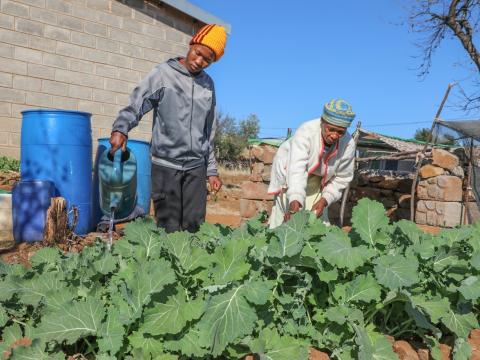
By: Reentseng Phephetho, Communications and Digital Officer, Lesotho
In the drought-stricken village of Pitseng, 59-year-old ‘Mamapiloko’s life tells a powerful story of resilience, hope, and the transformative power of knowledge. Raising four children and three grandchildren without a formal job, she relied on vegetable farming to feed her family and meet school expenses.
“Even without a job, I used my mind and hands to make ends meet.” — ‘Mamapiloko
For years, each harvest meant food on the table and a few essentials bought. But then the rains stopped. Climate change hit Lesotho hard, and the once-reliable gardens shriveled under the sun.
When the Climate Turns Against You
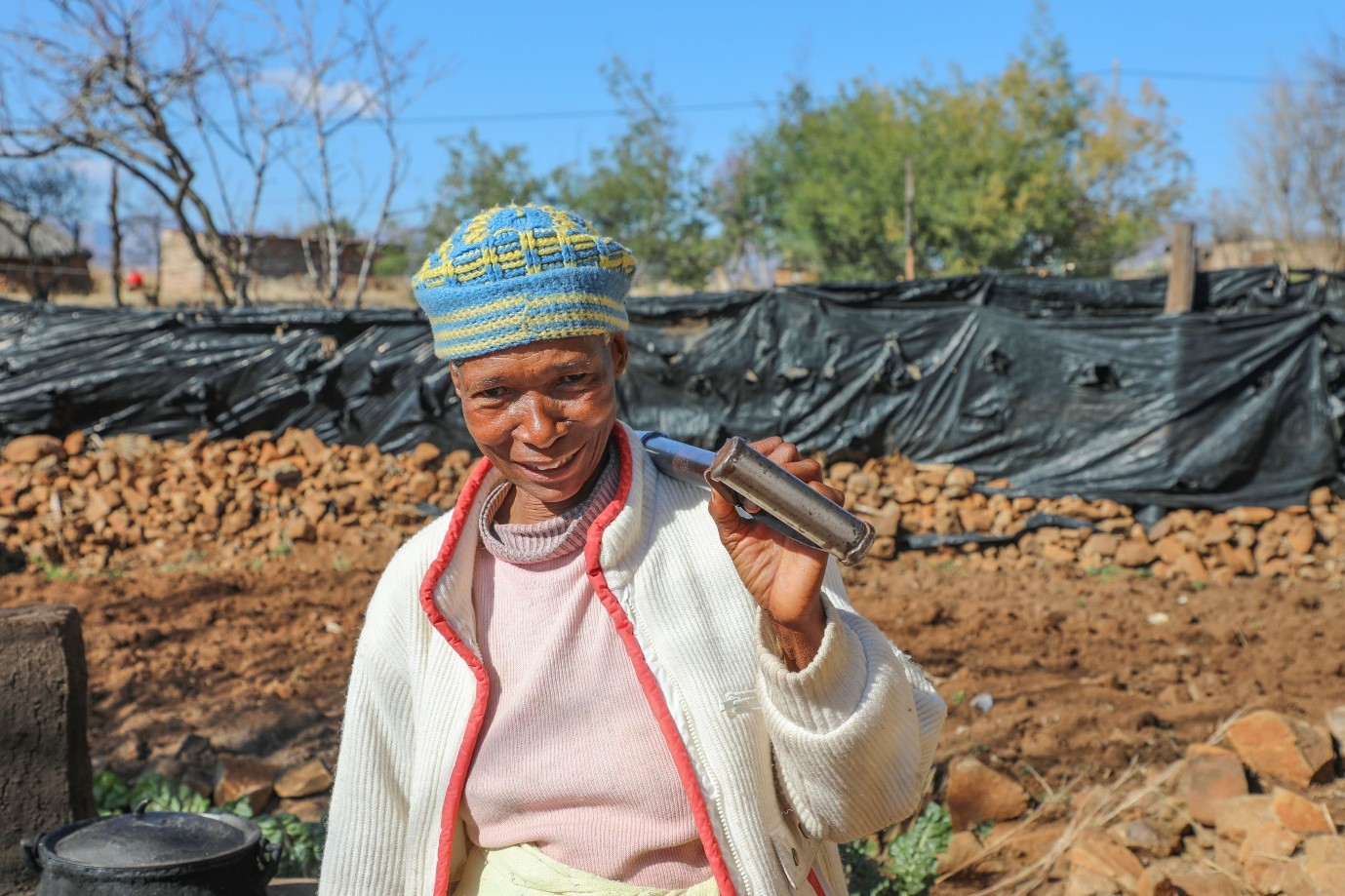
The drought brought devastation. The little money ‘Mamapiloko had left went into buying seeds, but nothing grew. The family began relying on neighbors for food, and she could no longer meet even the simplest of needs.
“I could not even afford a mere t-shirt for one child; poverty had taken over our lives.” — ‘Mamapiloko
A Daughter’s Heartache in the Face of Hunger
Among her children was ‘Mone, a young student with a deep love for agriculture. She had learned some techniques at school and tried applying them at home, but the results were the same, wilted plants and empty plates. Hunger gnawed at her ability to focus.
“I was depressed and couldn’t focus in class because of hunger. My mother was struggling, and I wished there was something I could do.” — ‘Mone
Planting the First Seeds of Change
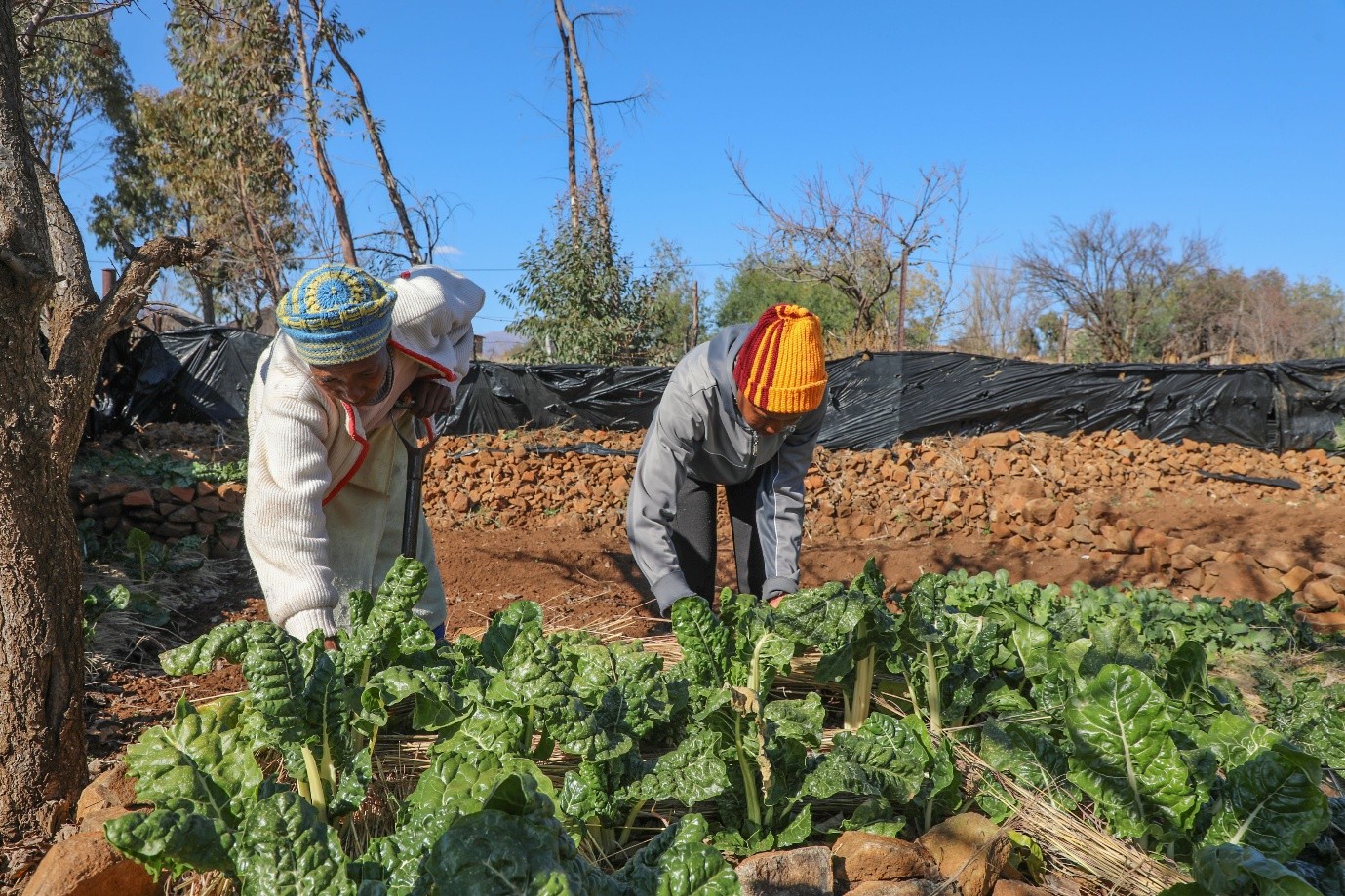
In April 2024, a turning point arrived. World Vision, through the Faith Partnerships on Environmental Stewardship and Climate Action Project, organized a youth workshop on climate change mitigation and adaptation. A key highlight was training young people in climate smart agriculture teaching planting methods that conserve water, improve soil, and withstand drought.
From Workshop to Working the Soil
‘Mone returned home brimming with ideas. She taught her mother the techniques she had learned, and together they built a keyhole garden—a circular, raised bed designed to retain moisture and produce vegetables year-round. They also constructed a fuel-saving stove to reduce wood usage.
The Harvest That Changed Their Story
The first harvest was a revelation. Vegetables flourished, hunger lifted, and they earned M500 from selling the surplus.“I was now doing Grade 11, I finally focused in class,” said ‘Mone with pride. The dream of helping her mother was coming true. With food in the house and basic needs met, ‘Mamapiloko could finally say:
“Poverty is the story of the past.”
From Poverty to Possibility
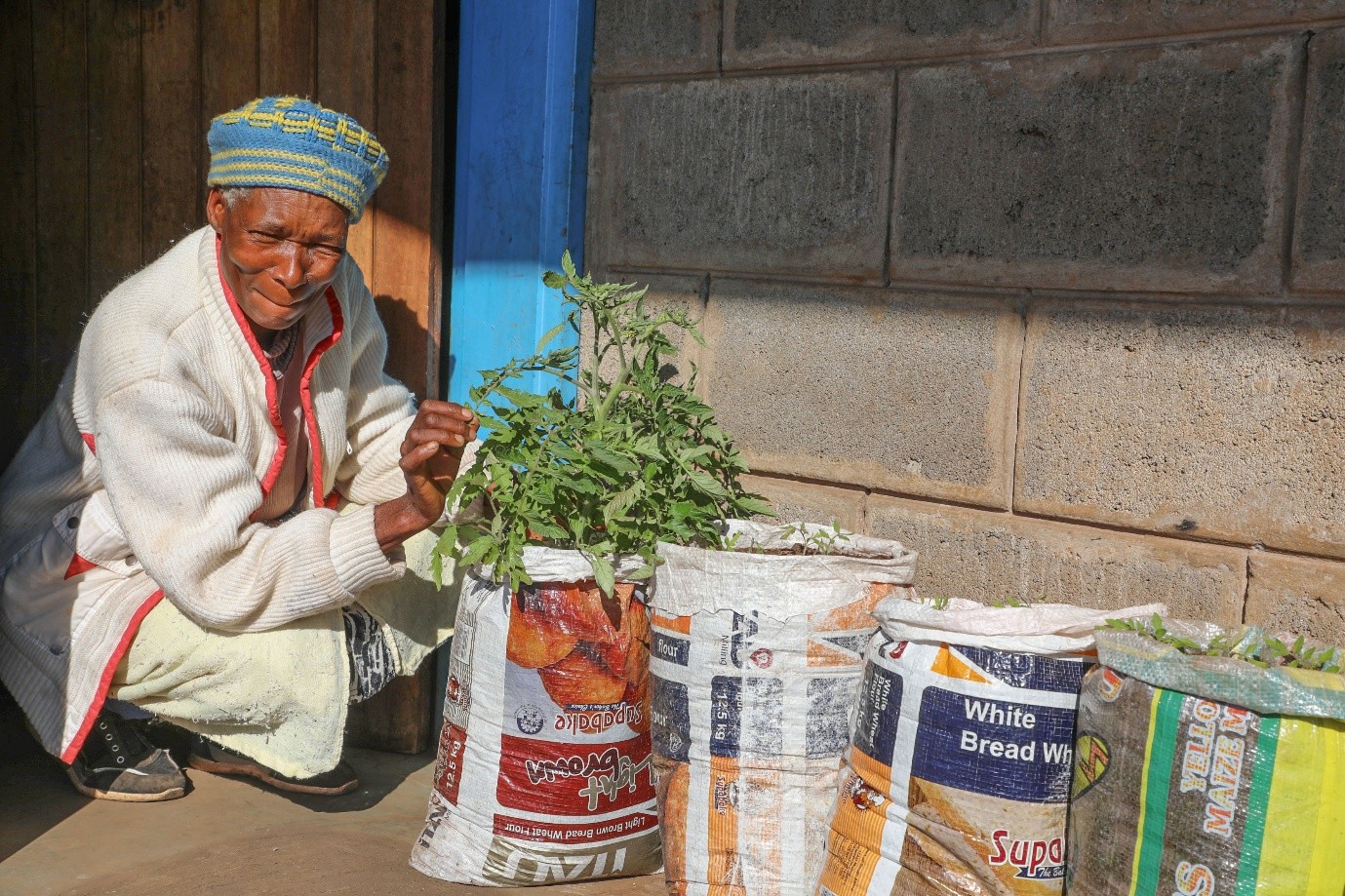
The family didn’t stop there. They built two more keyhole gardens and experimented with growing tomatoes in bags, another success. With the right skills, they now grow different crops throughout the year. Their home, once a place of survival, has become a hub of innovation and resilience.
Inspiring a Community to Take Action
Motivated by their transformation, ‘Mone began gathering youth and neighbours to share what she had learned. Many families have since built their own keyhole gardens and adopted climate-smart practices.
“I have seen a lot of acceptance because lives are changing.” — ‘Mone
A Vision Rooted in Hope
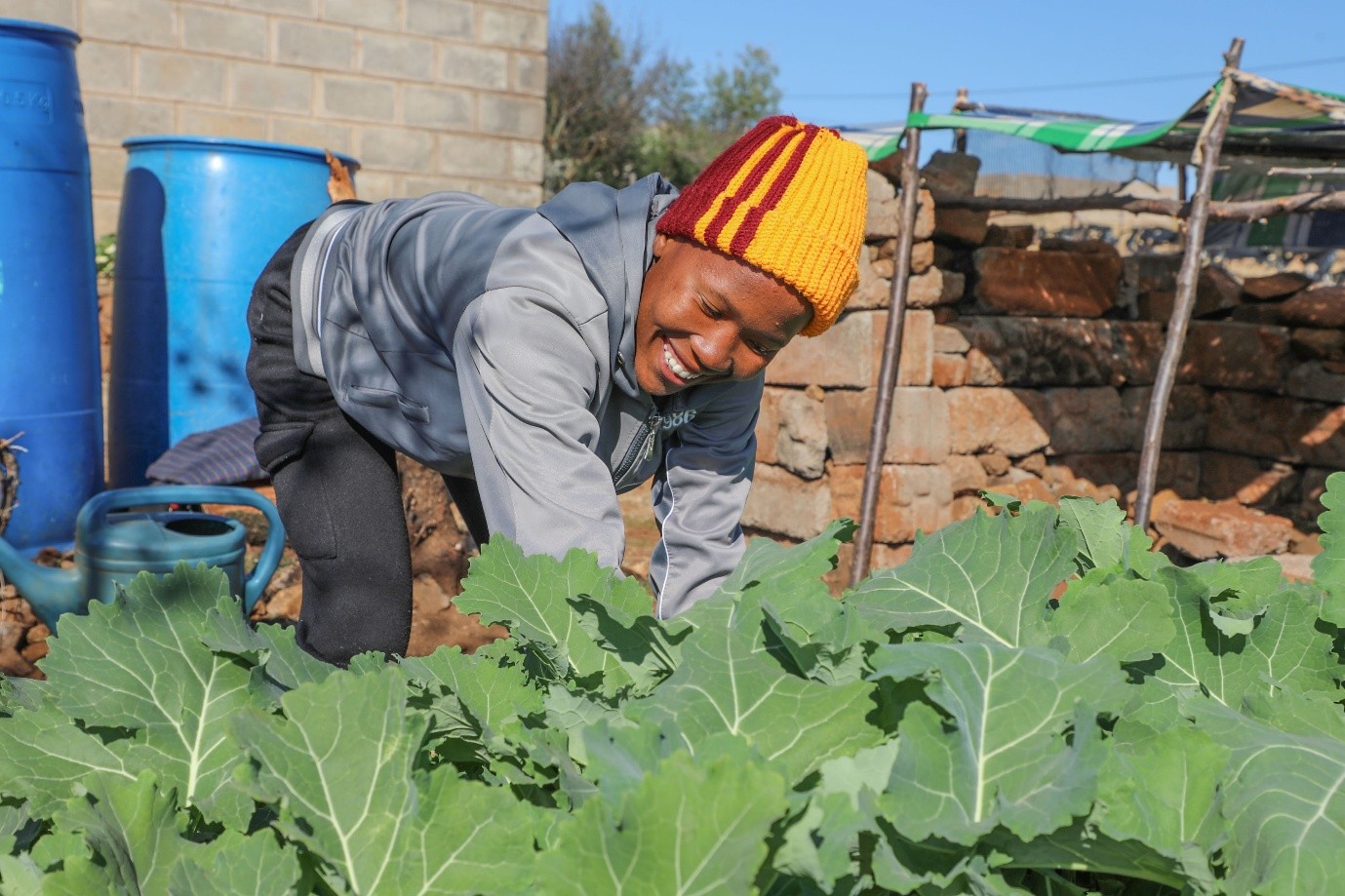
Looking to the future, ‘Mone dreams of expanding her farming, mobilizing youth, and leading climate change action in her community.
“I want to see youth taking action and leading on climate change.”
A Story That Reminds Us What’s Possible
In the face of drought and despair, ‘Mone and her mother found a way forward; not just for themselves, but for others. Their journey proves that with knowledge, resilience, and a bit of soil, transformation is always within reach.